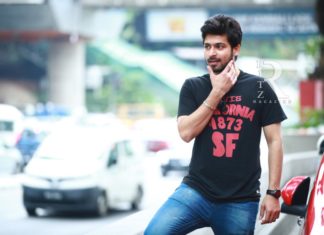When a top ranking official casts the trappings of power and his uniform aside and steps into the shoes of ordinary citizens, that’s when he would feel the pain they go through 24×7. So when Praveen Sood became just another name, minus even the IPS, on the attendance register of the 2003 MBA batch at IIM Bangalore, it was more than an eye opener. Becoming “a student all over again” was quite like an Independent Director of a Company who is regarded as an ‘outsider inside’. “I got to view policing as a common man. I had moved into the hostel, drove my own car and would often be flagged down by traffic cops for no reason except to check my driving licence, vehicle registration and insurance. In civvies, few could recognise me!” On one such drive, this 1986 batch IPS officer noticed a traffic constable opening the tap of a passing water tanker. Enquiries later revealed that it was to quench his thirst for a tip, or ‘mamool’ in police parlance!
The incident left such a lasting impression that the first order he issued after getting back into his khakhi uniform, as the Commissioner of Police- Mysore and later as the Additional Commissioner of Police (Traffic) Bengaluru, was ‘Thou Shall Not Stop Motorists’ just to check documents. The only exceptions were suspected drunken or rash driving. “The logic was that there was no need to stop vehicles and block traffic to check documents when 90 per cent motorists are law abiding.”

This practical style of policing was not inherited. Sood is not a second generation bureaucrat. His background is humble. “My career in the IPS was pure destiny. The Soods are traditionally business people. I was born in Himachal Pradesh but brought up in Delhi. My father, the late Om Prakash Sood was a clerk in the government and my mother Kamlesh Sood was a teacher.” By virtue of being in IIT Delhi, where he completed a B Tech degree, he saw “everyone appearing for the Civil Services Examination.” With Civil Engineering and Psychology as optional subjects, he too joined the ‘nerd herd’ and was “pleasantly surprised” to find that he had scored a fairly high rank and landed in the IPS. “Every day is a new experience. And I think Karnataka is the best cadre I could have got.”
Early in his career, as the Assistant Superintendent of Police – Nanjangud, Sood realised that “to feel the pulse of the people we serve, we do need to master the local lingo.” His district postings in Bellary and Raichur saw action against dacoits who used to waylay buses on the highways. There were also some naxal movement. “Those days we all had to prove ourselves. Night rounds was a regular feature.” But his first city assignment came in ’95 when he was posted as Deputy Commissioner of Police (Law & Order) West Bangalore. It was an eventful three year stint. Sood was put in charge of the Anti Rowdy Squad for the entire city with a spate of high profile kidnapping cases. A prominent businessman Jaipuria had been abducted. The ransom demanded was a whopping 10 crore. The criminals were from Uttar Pradesh and one of them had powerful political connections. “The tycoon was rescued in 5 days without paying a rupee.” Sood’s academic knowledge of Psychology probably came in handy!
Another three year stint beckoned, this time on deputation as the Police Advisor to the Government of Mauritius. “This was a great learning curve. The country was more advanced, at least procedurally. Confessions to a police officer were valid. Third degree methods were never used. There was zilch emphasis on recovery as evidence.”
Striking at the root of corruption in policing, Sood completely overhauled the police recruitment system in Karnataka. When he was posted as the Deputy Inspector General of Police (Recruitment), he found that for a couple of years, there had been no recruitment, as the process was mired in litigation. Sood convinced the government to scrap the interview and old recruitment procedure which was highly subjective and prone to nepotism and replaced it with multiple choice questions with carbon copies of answer sheets carried out by the candidates and only qualifying marks for physical fitness. This meant that anyone could cross check the answers and ushered in a new wave of transparency. Initially introduced for the constabulary, it was later extended for Sub Inspector recruitment and was “replicated by other States like Andhra Pradesh and Uttar Pradesh.” The system ensured “zero interference” from either the political establishment or higher ups in the department. “My successors have taken it to greater heights.”
Although Traffic Management was never formally taught at the Police Academy, Sood seems to have been bitten by the innovation bug. Hardly four months before the new Airport was opened, with the distance to the city and the snarls giving Bangaloreans nightmares, Sood was posted as the Additional Commissioner of Police – Traffic, Bengaluru in 2008. This was when he devised ‘Operation Blackberry’ and set up a sophisticated Traffic Management Centre with surveillance cameras as “manual intervention causes more chaos in traffic.” Technology, he felt “reduced physical interface and corruption.” The E-Challan system, he claims, was a hit and a classic disruptive technique. “Freedom from challan books exposed leakages. We were not doing more enforcement. They were just leakages plugged.” And how. “The fine collection which stood at 15 crore till 2008, shot up to almost twice that figure the following year. In 2010, it was 39 crore, climbed to 52 crore in 2011 and is about 70 crore per annum today.” In a jocular vein, Sood says that had he been a CEO of a private company with this bottomline, he could have jolly well pocketed a ten fold salary hike!
For 25 years, from the time he entered the IPS in 1986 till 2011, this top cop “hardly ever took leave or went on a holiday”. It was finally time for the family. Refreshed after a break, the turnaround officer went on to head the Police Computer Wing as the Additional Director General of Police.”We were the first State to have an advanced Criminal Tracking Network, for which my predecessors did a lot of work.” Sood took on the mantle of “delivery of services”. The Right to Services was introduced under the rubric ‘Sakala’ meaning “within time.” There were 21 services ranging from FIR copies to Passport Verification guaranteed to citizens with SMS alerts at every stage.
The disruptive strategy in policing saw Sood regularly sharing his expertise in Traffic Management and Citizen Centric Services at the National Police Academy. “I always tell my officers. ‘Don’t ever say I started this or that’.” Come to think of it, the mantra of ‘institutionalise, not personalise’ seems ideal even in our political landscape!
What babudom may construe as ‘innocuous postings’, this senior officer has strived to make a difference everywhere. As the Managing Director of the Karnataka Police Housing Corporation, he was instrumental in implementing a scheme for the construction of 10,000 quarters for policemen in one go. The rationale was simple. “If policemen have to cough up huge rent for private accomodation, it may force them to become corrupt; if they live in slums, they may rub shoulders with criminals.” During his short stints as the Principal Home Secretary and Additional Director General of Police of the Karnataka State Reserve Police and Administration, he provided a morale boost to the otherwise demotivated constabulary with an emphasis on their welfare.
The crowning glory came in January this year with his appointment as the Commissioner of Police, Bengaluru. His immediate focus was on the response time to calls to 100. “I found that calls to 100 would be often engaged or no one would pick up within a reasonable time. I increased the lines to 100, all of them hunting lines. My Namma 100 scheme envisaged a 15-15 goal – a call should be picked up within 15 seconds and an emergency response vehicle should reach a scene of trouble or crime within 15 minutes. Today, every call to 100 is answered in 4 to 5 seconds and the police party reaches the spot in 17 minutes, down from 30 minutes earlier.” A firm believer in the ‘broken window’ theory, the Commissioner feels “statistics mean nothing. The police image revolves around the speed with which we reach a citizen in distress.” For that matter, he doesn’t fancy displaying the mobile numbers of senior officers. “Why should a citizen have to ring up a senior officer for sundry matters? That’s why I have merged all helplines into 100 with an IVRS menu like press 1 for emergency, 2 for traffic, 3 for childline\elders. If you want an appointment with the Inspector for “non emergent work of a routine nature, you don’t have to hang around at the police station indefinitely. You can fix an appointment through 100.”
One of the first police departments in the country to capitalise on the social media, Sood has an impressive 8.3 lakh twitter followers and counting, while the Bengaluru City Police handle has another 8 lakh followers. A simple tweet can galvanise the police into action.
On the personal front, the queen at home – Vinita Sood works for an education company that aims to transform rote learning to activity based education and life skills. The Soods have two charming daughters – Aashita is a lawyer and is now doing her Post Graduation in Intellectual Property Rights in London and Anoushka is studying Economics and Mathematics.
A keen golfer, the Commissioner has been unable to touch his gear for quite sometime. Or dive into the pool for a swim. “Right now my hobbies are zero”, he confesses but is quick to reiterate his “passion for technology.” Truth be told, this interview was fixed through a tweet and direct message! #HighTechTopCop.
(Sanjay Pinto is a Lawyer at the Madras High Court, Columnist, Author, TV Political Commentator, Public Speaking Mentor & Former Resident Editor – NDTV 24×7)









 Raashii Khanna
Raashii Khanna










